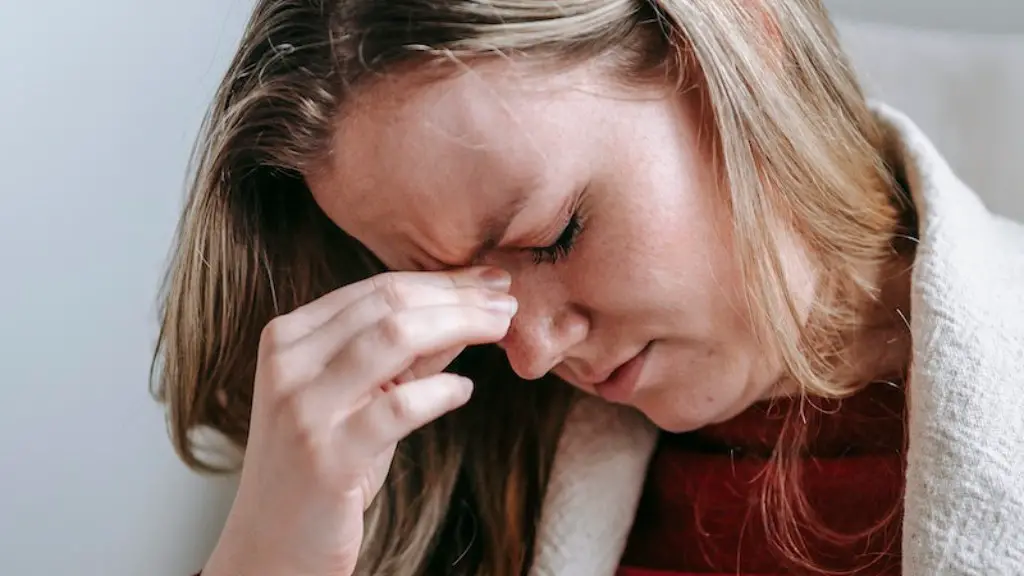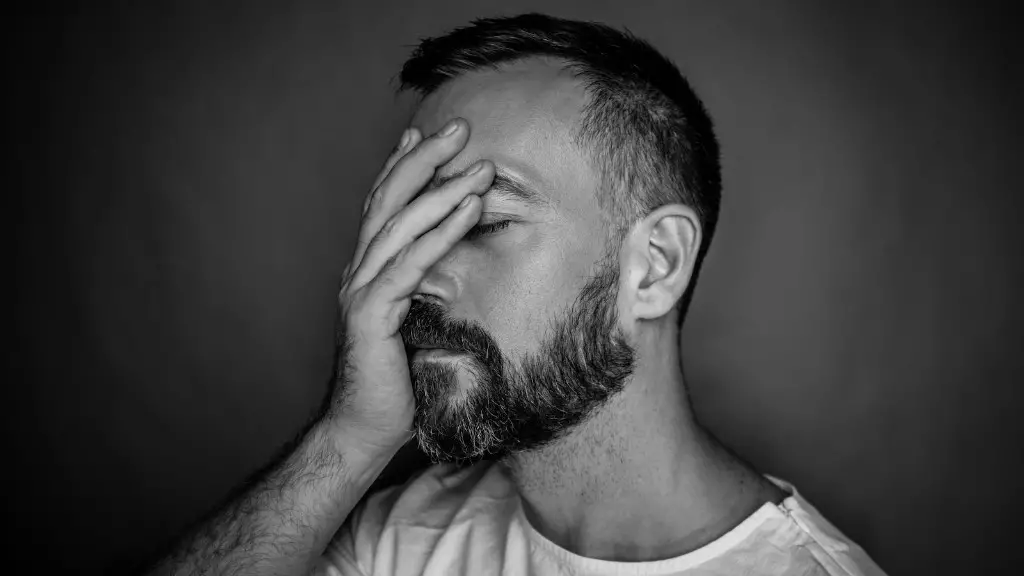It’s well known that stress can cause all sorts of physical and mental health problems. But can it also cause insomnia? It turns out that stress can indeed be one of the many factors that contribute to insomnia.
It is possible that stress may cause insomnia. Stress can cause a person to feel overwhelmed, anxious, or irritable, which may make it difficult to fall or stay asleep. In addition, stress can cause physical symptoms such as headaches, muscle tension, or stomach problems, which can also interfere with sleep. If you are experiencing stress-related insomnia, try to identify the source of your stress and find ways to manage or reduce it. Relaxation techniques such as deep breathing or meditation may also help.
How do you stop stress induced insomnia?
There are a number of ways that you can decrease insomnia caused by stress. One way is to see a doctor and/or psychiatrist. If sleep is impacting your everyday life, make an appointment with a doctor to discuss your options. Another way to decrease stress-induced insomnia is to practice relaxation techniques. Relaxation techniques can help you manage the stress that is keeping you from sleep. Finally, practice good sleep hygiene. This means creating a environment that is conducive to sleep and following a routine before bed.
Tension in your body can make it difficult to sleep. You may not even realize when you’re stressed about something, but your body can still feel the physical effects of stress, leaving muscles tensed up as a result. Progressive muscle relaxation has been an accepted evidence-based treatment for insomnia for years.
Can stress and anxiety cause insomnia
Anxiety can cause serious sleep issues, such as insomnia. While experiencing anxiety attacks may cause many people to feel exhausted or fatigued, the act of falling asleep may actually become harder due to the anxiety and the body’s sense of worry or fear.
Anxiety-induced insomnia is a condition in which sufferers of anxiety are unable to relax, unwind and ultimately fall asleep. This is due to key psychological signs like a persistent sense of worry, dread or apprehension.
Why wont my body let me sleep?
There are many possible reasons why you might be tired but unable to sleep. It could be a sign that your circadian rhythm is off, or it could be caused by poor napping habits, anxiety, depression, caffeine consumption, blue light from devices, sleep disorders, or even diet. If you’re having trouble sleeping, it’s important to talk to your doctor to rule out any underlying health conditions. There are also some lifestyle changes you can make to improve your sleep, such as avoiding caffeine before bed, establishing a regular sleep schedule, and creating a relaxing bedtime routine.
There are many adults who experience short-term insomnia at some point in their lives. This type of insomnia usually lasts for a few days or weeks and is often the result of stress or a traumatic event. However, some people suffer from chronic insomnia, which lasts for a month or more. If you are one of these people, it is important to seek help from a medical professional in order to get the treatment you need.
Should I just stay awake if I can’t sleep?
There are a few things you can do if you can’t sleep instead of just trying to force yourself to sleep. One is to read or listen to something calming. This can help your mind and body to relax and prepare for sleep. Another is to get up and do something else for a little while. This can help to take your mind off of whatever is keeping you awake and help you to relax. If you can’t sleep, don’t try to force yourself to sleep. Instead, try some relaxation techniques or get up and do something else for a little while.
1. Practice breathing exercises: Breathing exercises are a great way to help your body and mind relax. Focus on your breath, pushing all other thoughts aside.
2. Meditate: Meditation helps quiet your mind and can be very helpful in reducing stress levels.
3. Mindfulness: Practice gratitude and focus on the present moment. This can help you feel more calm and relaxed.
4. Call a support person: Talking to someone who can offer support and understanding can be very helpful in times of stress.
5. Do relaxation exercises: There are many different relaxation exercises you can do, such as yoga or stretching.
6. Exercise: Exercise is a great way to reduce stress and improve your overall health.
7. Immerse yourself in a creative outlet: Doing something creative can help you feel more relaxed and can be a great outlet for stress.
8. Get enough sleep: Sleep is important for overall health and can help reduce stress levels.
9. Eat healthy: Eating healthy foods can help your body function better and can help reduce stress levels.
10. Take breaks: Don’t try to do everything at once. It’s important to take breaks throughout the
What to do when insomnia attacks
1. Nix naps during the day if you want to sleep better at night.
2. Block out any light in your bedroom so that your body can prepare for sleep.
3. Try using a leg pillow to prop up your knees and alleviate back pain.
4. Put your neck in a neutral position when you sleep to avoid stiffness and pain.
5. Seal any holes or cracks in your mattress so that you can get a good night’s sleep.
6. Reserve your bed for sleep and sex so that your body associates it with relaxation.
7. Set your body clock by going to bed and waking up at the same time each day.
8. Stick to a regular sleep schedule as much as possible.
If you have an anxiety disorder, it is important to seek treatment from a mental health specialist. They will likely suggest medications, relaxation techniques, and cognitive behavior therapy to help you understand and better control your emotions and behavior. With treatment, you can live a normal, healthy life.
How do I know I’m suffering from insomnia?
If you regularly find yourself having difficulty falling asleep, waking up multiple times throughout the night, or lying awake at night without being able to fall back asleep, you may be suffering from insomnia. This is a common sleep disorder that can have a significant impact on your overall health and well-being. If you think you may be suffering from insomnia, it is important to speak to a doctor or sleep specialist to get a proper diagnosis and to find the best treatment options for you.
There are many possible causes of insomnia, and one of them is sleep anxiety. If you’re feeling stressed or anxious, it can be hard to fall asleep or stay asleep. This can be a short-term problem lasting for a few days or weeks, or it can be a chronic problem that lasts for months. If you’re having trouble sleeping, talk to your doctor to see if sleep anxiety might be the cause.
Do anxiety meds help you sleep
Benzodiazepines are a type of medication that can be used to help treat anxiety and promote relaxation. They work by enhancing the activity of the neurotransmitter GABA, which is a chemical in the brain that helps to promote feelings of calmness and relaxation. Benzodiazepines can also cause drowsiness, which can help to make it easier to fall asleep and sleep through the night.
These are some great tips for improving your sleep! Reducing your intake of caffeine, nicotine, and alcohol will help you sleep better. Avoiding electronic devices in the leadup to bedtime will also help you sleep better. Ensuring that you have a quiet, dark, and comfortably cool sleep environment will also help you sleep better. Keeping naps to 30 minutes or less will also help you sleep better.
How can I force my body into deep sleep?
There are a few things you can do to relax before bed and ensure a good night’s sleep. Taking a bath, reading, or listening to quiet music are all great options. Avoid discussing or thinking about stressful topics before getting into bed. Instead, focus on something positive or calming. This will help you fall asleep more easily and sleep more soundly through the night.
The worst thing you can do when you can’t fall asleep is lie in bed and attempt to force yourself to sleep. This will only make it harder to fall asleep and can lead to frustration and anxiety. Instead, try to relax and let your body fall asleep naturally. You can also try some basic sleep hygiene techniques, such as keeping a cool and comfortable environment in your bedroom and avoiding caffeine and screens before bed.
Final Words
It is not uncommon for stress to lead to insomnia. Stress can cause difficulty falling asleep and staying asleep. While it is important to find ways to manage stress, there are also things that can be done to treat insomnia.
It’s a common belief that stress can cause insomnia, but there’s not much scientific evidence to support this claim. Some studies have found that people who are under stress are more likely to experience insomnia, but it’s not clear if stress is the cause or if the two conditions are just linked. If you’re struggling with insomnia, it’s important to talk to your doctor to rule out any underlying medical conditions and to find the best treatment for you.





